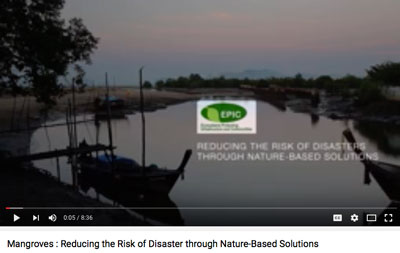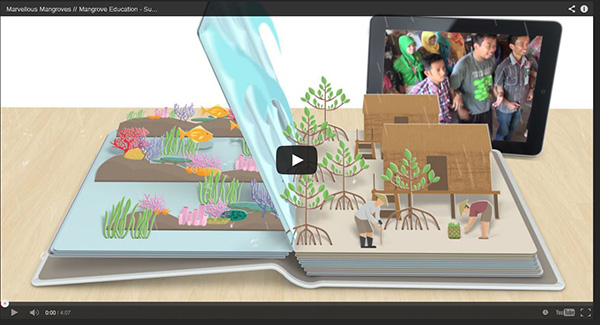Mangrove Restoration Potential 
GLOBAL – Mangrove forests are important for food production, carbon storage and sequestration, coastal protection, water purification, and tourism, which is why there is an increasing need not only to prevent further loses, but to increase mangrove areas through restoration. TNC has partnered with IUCN to develop a global model and map of mangrove restoration potential to help practitioners prioritize areas, and as a way to support and encourage mangrove restoration projects globally. The model incorporates information on both current and historic distribution of mangrove forests, as well as local drivers of mangrove loss and degradation (e.g., urbanization and industrial development, conversion to agriculture and aquaculture ponds, deforestation for fuelwood or timber, altered freshwater regimes, pollution and coastal erosion), which can vary in extent and severity depending on the region. Environmental (e.g., wave energy, tides) and social factors (e.g., population density, demographics), as well as future projections of sea level rise, urbanization, and weather events are other factors that can influence restoration suitability, and will also be incorporated into the model where possible.
READ MORE AFRICA
“Without our forest, we have no life, we disappear”
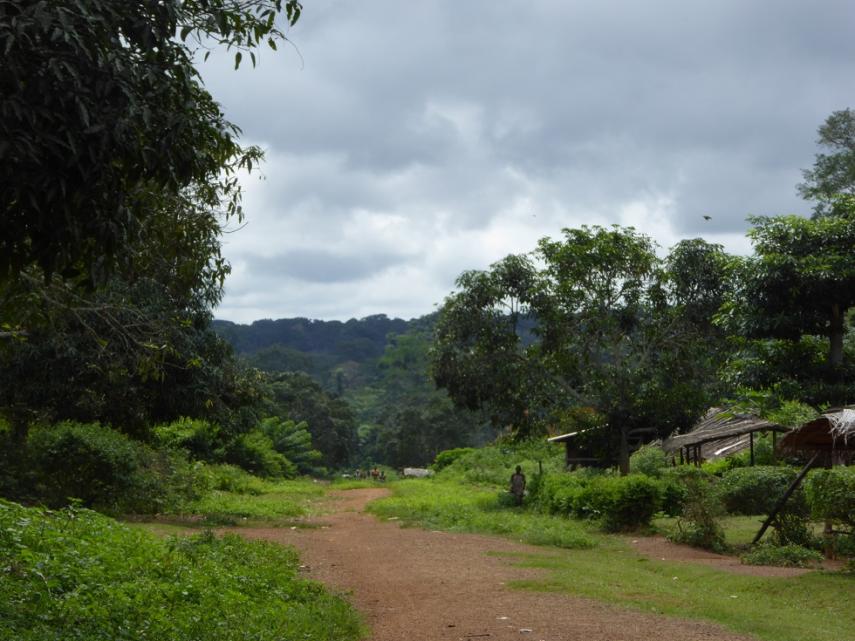
CAMEROON – "Life in my Baka community is getting harder and harder. We live mostly from the resources of the forest, and with our forest is increasingly exploited by foresters, and as the state continues to create national parks and reserves, the forest no longer provides us with enough food and medicinal plants. With the introduction of heavy forestry equipment, the game animals have disappeared. Poverty has become established, and we must convert ourselves into farmers, where again we face serious problems linked to land conflicts and lack of land. Our Bantu neighbours hold all the lands. Our rights of use of the forest, land and natural resources are ignored. "We are a sharing community, and we try to share what we find in the forest to eat. During certain times of the year there is still enough food (wild mango, mushrooms, wild yams, rats, fish, leaves and roots). Since our community is growing, we divide into groups to go camping in the middle of the forest to stock up on food. During these trips, families eat well.” READ MORE
ASIA
Giving mangroves a voice: One man's mission to protect the future of Bahak Indah

INDONESIA – The pioneer behind Bahak Indah’s transformation is 64-year-old Samsuri, who for 20 years has been planting mangroves and raising awareness among the local communities and government on the importance of mangroves Samsuri and his family used to walk on the east side of the beach, where the mangroves were thick and healthy. In the early 1990s, he noticed that the mangrove roots stabilise sediment, and had the idea of growing mangroves closer to his village, where fish and shrimp ponds were being heavily impacted by coastal erosion. At a time when most of his community were unaware of the role of mangroves in coastal protection, and mostly used mangrove leaves as livestock fodder, this was a revolutionary idea.In 1998, during Ramadan, Samsuri put his idea into action. After suhoor (the meal eaten at dawn before the start of the fast), he and his younger brother collected mangrove seeds and planted them on Bahak Beach, near the villages. READ MORE.
Big aquaculture bulldozes Borneo

MALAYSIA – Swinging his machete with an economy of movement that only the jungle can teach, Matakin Bondien lopped a stray branch from the path of his boat. He hopped barefoot from the prow, climbed a muddy slope and stared once more at what he’d lost. Not long ago, the clearing had been home to mangroves, saltwater-loving trees that anchor a web of life stretching from fish larvae hatching in the cradle of their underwater roots to the hornbills squawking at their crown. Now the trees’ benevolent presence was gone, in their place a swath of stripped soil littered with felled trunks as gray as fossils. “Do you think we can find any food in this place now?” asked Bondien, a village leader of the Tombonuo people. “The company thinks it can do anything it wants — that we don’t count.” The company is Sunlight Inno Seafood. READ MORE
Mangroves can help countries mitigate their carbon emissions
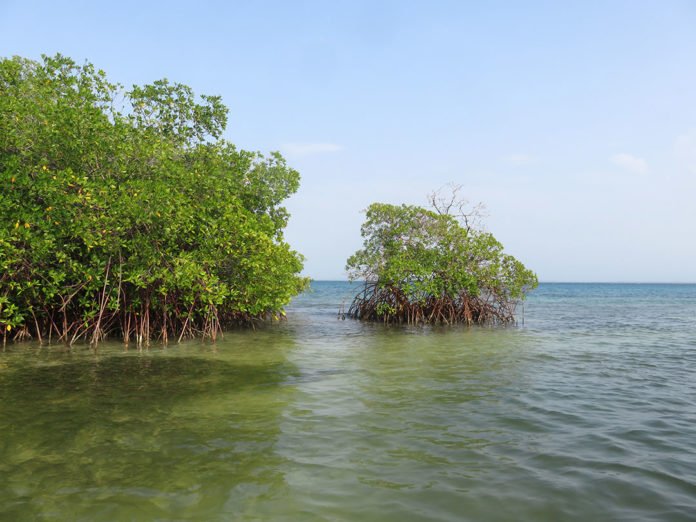
SINGAPORE – Geographers from the National University of Singapore (NUS) have found that coastal vegetation such as mangroves, seagrasses, and salt marshes may be the most effective habitats to mitigate carbon emissions. The study, which was conducted by researchers from the Department of Geography at the NUS Faculty of Arts and Social Sciences, indicates that nations with large coastlines could expand these ecosystems to further counteract their fossil fuel emissions. These findings were published in the Royal Society journal Biology Letters on 24 October 2018. With the recent Paris Agreement setting a target for all nations to become carbon neutral in the future, utilizing these natural ecosystems could help to achieve this goal.READ MORE
Course builds capacity for integrated coastal management in Asia

THAILAND – Since its implementation in 2007, Mangroves for the Future (MFF) has recognised ICM as an important approach towards the goal of building the resilience of coastal ecosystems and communities. Enhancing the capacity of coastal management practitioners at local, national and regional levels — whether in government, NGOs, the private sector, or research and academic institutions — is fundamental to achieving this goal. In 2007, MFF teamed up with the Asian Institute of Technology (AIT) to develop a regional postgraduate ICM certificate course that combined academic lectures, practical skills training, and field-based learning about coastal management. The programme was designed as an intensive six week course, and was offered on a near-annual basis at the AIT campus. Since it began in 2007, more than 140 mid-career professionals from government and non-government organisations in 11 MFF member countries across Asia have completed it. READ MORE
Where goats drink first: Women struggle as coastal India grows saltier

INDIA – Dripping wet and looking exhausted, Shompa Pal winces as she walks into her home, holding tightly to a knot at the end of her saree. From it she extracts and lays out to dry a soggy 100 rupee note, her earnings from wading waist deep in the brackish waters of the Bidyadhari River for four hours, dragging a triangular net behind her. On a good day, she catches a thousand thread-like baby prawns that swim in during the two daily high tides, earning 100 rupees ($1.40) from a dealer who sells them to private firms that grow and export prawns. Such work is common for poor women. Long contact with salty water, or bathing in contaminated pond water, gives many poor women skin diseases or reproductive tract infections, the health economist told the Thomson Reuters Foundation.READ MORE
AMERICAS
60% of world's wildlife has been wiped out since 1970

CANADA – Well over half the world's population of vertebrates, from fish to birds to mammals, have been wiped out in the past four decades, says a new report from the World Wildlife Fund. Between 1970 and 2014, there was 60 per cent decline, on average, among 16,700 wildlife populations around the world according to the 2018 edition of the Living Planet Report released Monday. "We've had a loss of nearly two-thirds, on average, of our wild species," said James Snider, vice-president of science, research and innovation for WWF-Canada. "The magnitude of that should be eye opening… We really are reaching a point where we're likely to see species go extinct. That's true in Canada and abroad." READ MORE
Capitalism is killing the world’s wildlife populations, not ‘humanity’
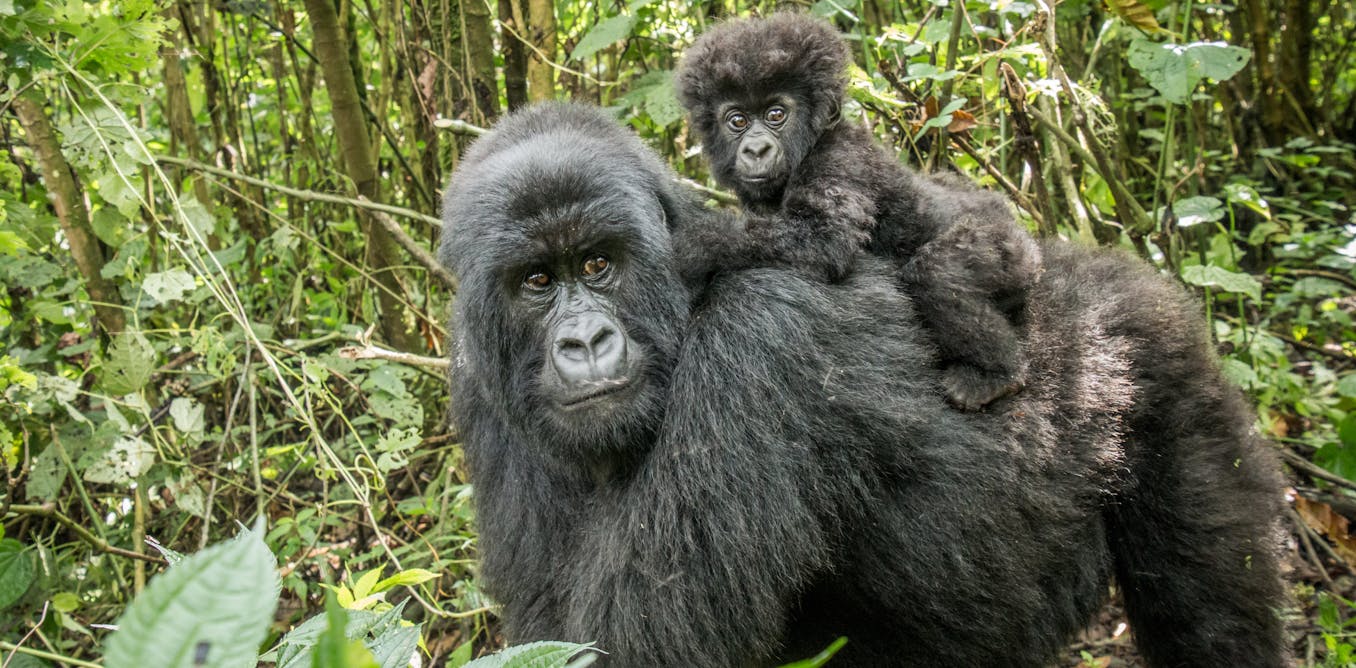
USA – The latest Living Planet report from the WWF makes for grim reading: a 60% decline in wild animal populations since 1970, collapsing ecosystems, and a distinct possibility that the human species will not be far behind. The report repeatedly stresses that humanity’s consumption is to blame for this mass extinction, and journalists have been quick to amplify the message. The Guardian headline reads “Humanity has wiped out 60% of animal populations”, while the BBC runs with “Mass wildlife loss caused by human consumption”. No wonder: in the 148-page report, the word “humanity” appears 14 times, and “consumption” an impressive 54 times. There is one word, however, that fails to make a single appearance: capitalism. It might seem, when 83% of the world’s freshwater ecosystems are collapsing (another horrifying statistic from the report), that this is no time to quibble over semantics. And yet, as the ecologist Robin Wall Kimmerer has written, “finding the words is another step in learning to see”. READ MORE
GLOBAL
Driven by warming waters, marine life is on the move

EUROPE – Reuters has discovered that from the waters off the East Coast of the United States to the coasts of West Africa, marine creatures are fleeing for their lives, and the communities that depend on them are facing disruption as a result. As waters warm, fish and other sea life are migrating poleward, seeking to maintain the even temperatures they need to thrive and breed. The number of creatures involved in this massive diaspora may well dwarf any climate impacts yet seen on land. In the U.S. North Atlantic, for example, fisheries data show that in recent years, at least 85 percent of the nearly 70 federally tracked species have shifted north or deeper, or both, when compared to the norm over the past half-century. And the most dramatic of species shifts have occurred in the last 10 or 15 years.READ MORE
LAST WORD
Please add me to your newsletter email list, thank you! We live in the Florida Keys, and Hurricane Irma did massive damage to our mangroves. We formed the Conch Republic Marine Army, that is focused on getting the trash out of the mangroves, and hope to replant new mangroves one day 🙂
Laura
conchrepublicmarinearmy.com

















